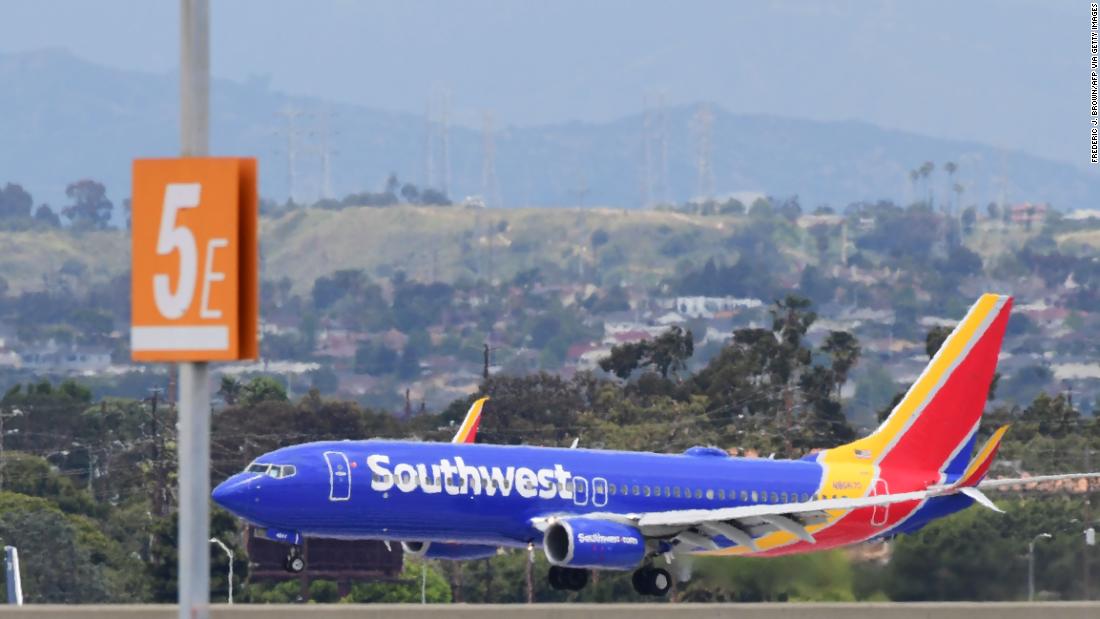“We will not deny boarding solely based on a Customer’s refusal to wear a face covering,” the memo reads.
This seems to be a more lax policy than some of the other airlines.
American Airlines’ policy says customers “may be denied boarding” for not wearing a mask. United’s policy would allow boarding in most cases but the policy notes, “there could be an isolated situation where a customer may be denied boarding as a last resort.”
JetBlue Airways’ language seems to be the most restrictive, with its memo saying, “Customers who refuse to comply with our policy will be denied boarding.”
Southwest Airlines wants flight attendants to inform customers of the policy but not enforce it, according to the airline’s memo.
Southwest flight attendants should approach the situation with “empathy and respect,” the memo reads.
“You are expected to inform Customers of our face covering requirement but are not expected to be the enforcers — ask the Customer to comply with wearing a face covering if they are able.”
Southwest provided a statement to CNN Thursday, saying that as a society we must “partly rely on common sense and responsible actions.” Employees are instructed to “respectfully request” that customers abide by the mask policy.
“Although Southwest is not denying boarding based solely upon a Customer not wearing a mask, we are providing masks and strongly encouraging Customers comply with the policy out of respect for the well-being of other Customers and our Employees during these unprecedented times,” the statement reads.
Passenger cooperation is key
For the most part, it seems that US airlines will rely on passenger cooperation rather than strict enforcement of their mask requirements.
Separate memos obtained by CNN that American Airlines (AAL) sent to its pilots and flight attendants show that customers may be denied boarding for not wearing a mask. But once on the plane, “the face covering policy will become more lenient” and “the flight attendant’s role is informational, not enforcement,” the pilot memo reads. It was first obtained by Reuters.
The American Airlines flight attendant memo describes how they should handle customers who don’t comply with the policy: “Please encourage them to comply, but do not escalate further. Likewise, if a customer is frustrated by another customer’s lack of face covering, please use situational awareness to de-escalate the situation.”
Like the American Airlines’ policy, United (UAL) makes exceptions for a variety of reasons including medical conditions. Its policy also points to avoiding confrontation.
“If for some reason this policy causes a disturbance onboard, we’ve counseled our flight attendants to use their de-escalation skills, and they do have the flexibility to reseat customers on the aircraft as needed,” United said in a statement.
JetBlue (JBLU) suggests workers at airports tell customers: “To help keep us all safe, customers and crewmembers are now required to wear face coverings.” The airline says there will be “challenges” to enforcing its policy.
In a nod to how charged wearing masks has become, the policy says, “Please be sensitive to the current environment — remember to leverage our Hospitality Promises and ‘Ask, Bargain & Convince’ skills to de-escalate a situation with a non-compliant or frustrated customer, and use your best judgement to uphold our service standards in order to minimize disruptions. While customers failing to comply will not prompt the need for diversion or immediate removal, our inflight crewmembers should advise an airports crewmember upon arrival.”
Its policy also reminds workers that they aren’t allowed to make people leave the terminal for not wearing a mask.
CNN has reached out to Delta (DAL) as well.
The nation’s airlines have all implemented policies that passengers must wear masks, following guidance from the CDC. But the FAA and TSA have not passed policies requiring masks for passengers as a matter of government-enforced rules.

